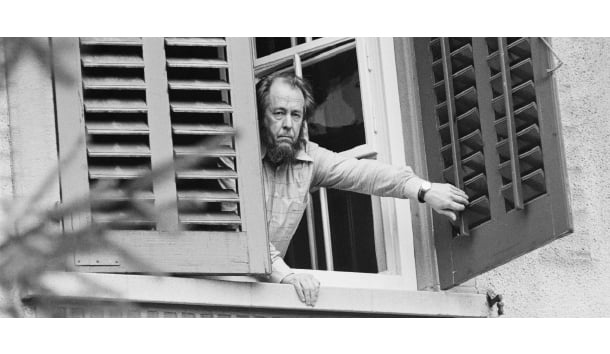The title of Joseph Pearce’s profound piece “Fighting the Dragon With Solzhenitsyn” (Society & Culture, January) hit me like a punch to the solar plexus, for Solzhenitsyn frequently directed its first three words to me in the form of a question—“Yeshche boryoutsya s drakonamy?”—as a sort of general “How goes it?”
As a callow Harvard grad student who served as Solzhenitsyn’s research assistant (1978-80), I spent many weekends with the great man and his ever-changing salon of émigrés and defectors. Thus, I can fully attest to Pearce’s thesis about Solzhenitsyn’s self-realization that God protected him, quite personally, as a frontline World War II Red Army officer, Gulag zek, terminal-cancer case, and KGB assassination target—and gave him a mission in the fight for Christian Western civilization.
A week doesn’t go by when some seemingly offhand or then-Delphic remark of Solzhenitsyn’s returns to me with spine-tingling force: “Sudan is a country that must break up.” “After the USSR collapses, Crimea will become a contention.” “European decadence will give rise to a series of soul-crises which will be exploited by Islam, high-finance and degeneracy of every kind—until the final meta-crisis about whether Europe should even exist . . . a question Russia will answer in the affirmative.”
Undoubtedly, Pearce scores a bullseye about Solzhenitsyn being an extraordinarily “great” and “good” man of “fortitude that was almost superhuman,” but, above all, he was also a “holy” man. Pearce compares him to Saint George, but I think a more apt parallel would be the ex-soldier, ex-prisoner, and ex-deathbed “disease case” Saint Francis, given their mutual humility, joy, dynamism, and restorative missions.
—Steven R. Verr, OFS
McHenry, IL

Leave a Reply